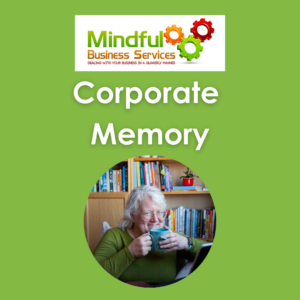
What do we mean by Benefits?
Legally all charity trustees must work for the overall benefit of their charity. Your governing document will list the charity’s purposes, and any annual reports etc. should refer to them.
However, all charity trustees must ‘have regard’ for the various charity acts which state that to be a charity, the quote below is for England & Wales, but Northern Ireland and Scotland have similar rules.
Each of the charity commissions have produced guidance on what public benefit means – although the final decision is always with regard to law and any court decisions.
To be a charity in England or Wales, your organisation must be set up with purposes which are exclusively charitable for the public benefit. You also need to carry out these purposes for the public benefit when you run your charity and report on this in your trustees’ annual report.
www.gov.uk
Who's benefit?
One of the fears I hear expressed regularly by trustees is ‘making the wrong decision’ or ‘doing something the Charity Commission won’t approve of’. You do need to make decisions through the lens of your Trusteeship of your specific charity, and the legal framework within which you work but I point people to the Charity Commission’s website and guidance which says…
Making 'the right' decision
“When making decisions about how to carry out their charity’s purposes for the public benefit, many trustees are concerned about what is ‘the right’ decision. In many situations there is no one ‘right’ decision to be made.
Legal requirement: however, trustees must make decisions that are within the range of decisions that trustees could properly make in those particular circumstances.
Provided that the trustees make a decision within that range, then they will have made a ‘right’ decision.
It is not for the courts or the commission to tell trustees which decision to make where there is a range of decisions open to them.
This means that, as a charity trustee, you generally have a choice about how to carry out your charity’s purpose, provided that you exercise your discretion in a way which:
- is in accordance with your charity’s purpose (so not operating outside of that purpose)
- is for the public benefit
- has regard to the commission’s public benefit guidance where relevant
- is in accordance with the general framework for trustee decision making – for more on this
see It’s your decision: charity trustees and decision making (This is not part of the commission’s public benefit guidance)”
Still uncertain about benefits?
Thankfully no trustee is solely responsible for any decision made by the whole charity. Decisions should be made corporately, and if you aren’t certain here are some suggestions you can follow:
- ask another more experienced trustee, ideally in your charity.
- read the appropriate charity commissions’ guidance – or ring their helpline.
- if your charity is part of or associated with a larger charity look to them for guidance. For Quakers in England, Scotland and Wales that would be on Quaker.org.uk
“Charities can provide public benefit in many different ways and in differing amounts.
Some benefits are easy to understand and measure. If your organisation sets out to help people with a certain type of disease, it is easy to point to the benefit its activities provide in relieving sufferers’ symptoms or in curing them. It is more difficult to measure the benefits of other types of charities, for example, a society preserving a part of our heritage, but that does not mean that there is no benefit.
Sometimes there is benefit to the public as a whole from a charity’s activities as well as to the people they are directly meant for. An example would be activities that promote literacy and health awareness among women in developing countries. As well as directly benefiting the women concerned, there is indirect benefit to the public in those societies by improving public health, especially in children.
There is no specific level of benefit that a charity must provide; many charities operate on a small scale or in small communities but are still able to show that they do provide public benefit.”
Office Scottish Charity Regulator (OSCR)
Trust in Quaker Trusteeship
‘We have continued our consideration of what it means to be a Quaker today by focusing on Quaker Trusteeship. We have been reminded that our spiritual journey is about living in the world and wrestling with the tensions between living out the testimonies and dealing with practical, financial and property matters. The real test of our faith is whether we can connect with the spirit in the mess of our daily lives.
Having bodies of named trustees is therefore not about giving all the power to a small group but making sure that all the difficult work gets done. Nor should we be surprised if mistakes are made, as this is where we as individuals fail as well. Both trustees and meetings need to hold each other in the light and above all to keep the lines of communication live and vibrant. We all belong to the same worshipping community, we are all working together and it is the same spirit that leads us.
Community is two way. Trustees need to empower other Friends to ask questions, perhaps by making minutes more widely available, and other Friends need to talk to trustees and ask for information. This openness will in turn support trustees in their work. God has placed trust in us. We need to honour that trust in moving forward together to build the Kingdom.’
Britain Yearly Meeting 2013
How do you do it?
- How do you ensure that the decision you make as a charity and the reports you create show your charity’s public benefit?
- Do you have copies of the various guidance documents to give to all new trustees?
- Do you refer to them while writing your annual reports or making decisions where it is difficult to reach clearness, or agreement as a group?
12. Do you receive the advice and support you need as a trustee group, and the right information to perform your duties and make decisions? Give some time to a consideration of how well you are working as a body of trustees.
Quaker Stewardship Committee (A&Q on Stewardship 2015))

Wendrie Heywood
MBS Founder
Further reading:
A is for advice
S for Sustainability & Stewardship
Five Minute Guides
Did you know that the Charity Commission have produced ‘five minute’ guides on how to be a charity?






